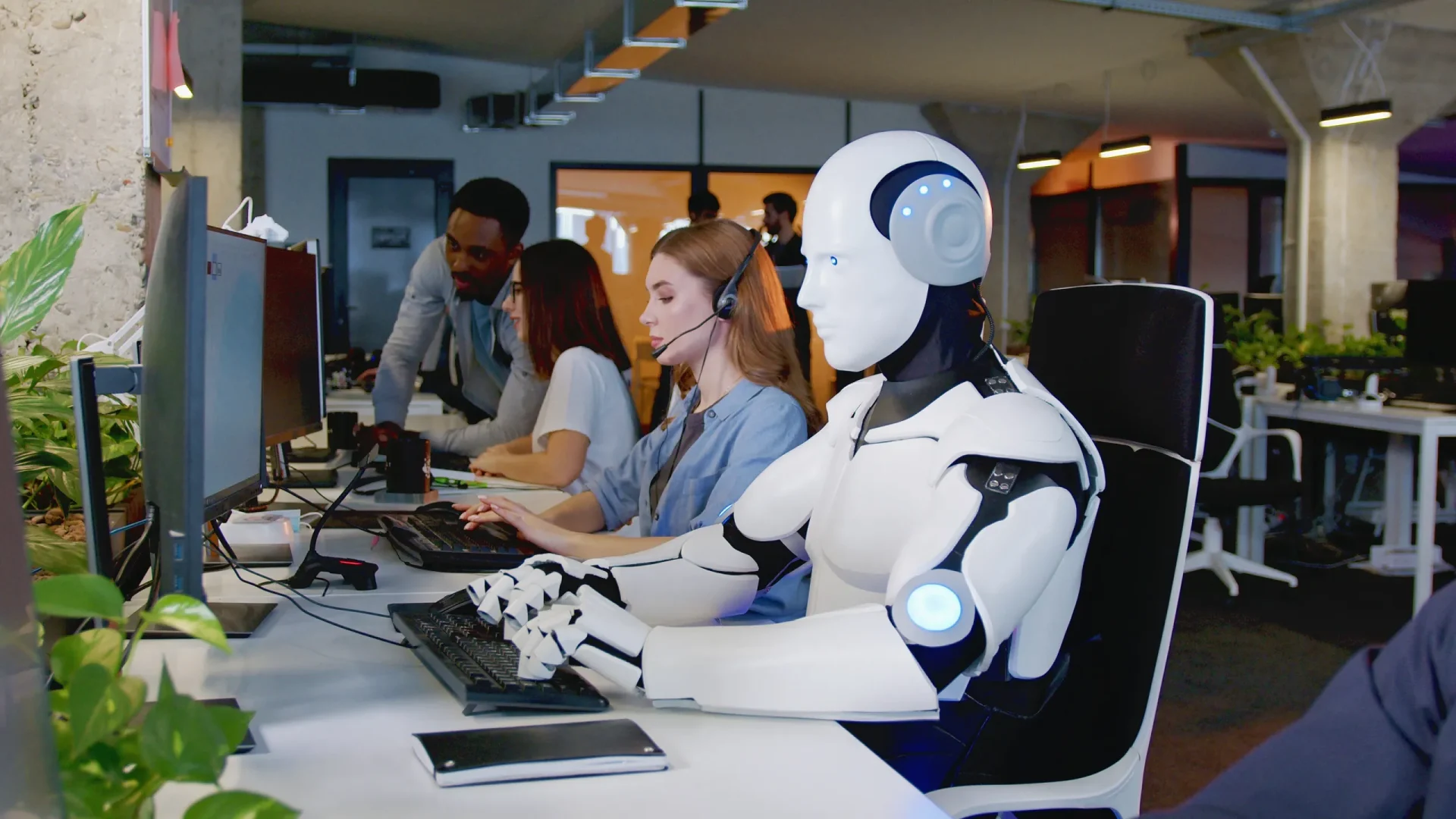Jobs That Will Survive the Rise of AI
As artificial intelligence continues reshaping the workforce, millions of workers are asking the same pressing question: will AI take my job? According to recent research from Syracuse University’s AI politics expert Professor Baobao Zhang, the answer isn’t simply yes or no. While AI threatens many traditional roles, certain careers remain remarkably resilient to automation.
Will AI Take Your Job? If you’re worried about AI taking your job, these careers are the safest bets, an AI politics professor says, focusing primarily on trades and care work that require human empathy and hands-on expertise. (Jobs That Will Survive the Rise of AI)
The Current State of AI Job Displacement
While many CEOs are pausing hiring while they wait and see what jobs AI could replace, one AI expert warns that nearly all roles are at risk. The concern isn’t unfounded. If predictions about AI advancements ultimately leading to superintelligence are proven correct, the issue isn’t going to be about whether the 50% entry-level jobs being wiped out is accurate, but that percentage growing to 100%.
However, Professor Zhang’s research offers a more nuanced perspective on which careers will weather the AI storm.
Top AI-Resistant Career Categories (Jobs That Will Survive the Rise of AI)
Skilled Trades: The Untouchable Professions
AI politics professor Baobao Zhang said trades and care work are safer from AI, and argued that roles requiring empathy and hands-on skills are harder to automate. These positions require complex physical manipulation, real-world problem-solving, and adaptability that current AI systems cannot replicate.
Most Secure Trade Careers:
- Electricians and electrical technicians
- Plumbers and pipefitters
- HVAC specialists
- Automotive mechanics
- Construction supervisors
- Welders and fabricators
Healthcare and Care Work: The Human Touch Advantage
The healthcare sector represents one of the most AI-resistant fields, particularly roles involving direct patient care. Of the list of AI-proof jobs, nurse practitioners are projected to grow the most, with an estimated increase of 45.7% by 2032, far faster than any of the other 64 jobs on the list.
Safest Healthcare Positions:
- Registered nurses and nurse practitioners
- Physical therapists
- Occupational therapists
- Home health aides
- Mental health counselors
- Social workers
Creative and Strategic Roles
While AI has made significant inroads into content creation, certain creative and strategic positions remain largely protected due to their requirement for human insight, emotional intelligence, and complex decision-making.
Why These Careers Resist Automation
Professor Zhang’s analysis reveals three key factors that make certain jobs AI-resistant:
1. Physical Dexterity Requirements Jobs requiring fine motor skills, spatial awareness, and adaptation to unpredictable physical environments remain challenging for current robotic systems.
2. Emotional Intelligence and Empathy Care work and client-facing roles demand genuine human connection, emotional understanding, and cultural sensitivity that AI cannot authentically replicate.
3. Complex Problem-Solving in Unpredictable Environments Skilled trades often involve diagnosing unique problems, working with legacy systems, and adapting solutions to specific circumstances.
Career Transition Strategies
For workers in AI-vulnerable positions, Professor Zhang recommends focusing on building transferable skills and maintaining professional flexibility. She warned young workers to stay flexible and build strong networks.
Key Recommendations:
- Pursue certifications in skilled trades
- Develop interpersonal and care-giving skills
- Build diverse professional networks
- Stay adaptable to technological changes
- Consider hybrid roles that combine human expertise with AI tools
The White-Collar Vulnerability
Surprisingly, many white-collar positions face greater AI risk than blue-collar trades. A new report from Microsoft researchers studying the occupational implications of generative AI offers some clarity. Translators, historians, and writers are among the roles with the highest AI applicability score.
Traditional “safe” professional roles like accounting, data analysis, and basic legal work are increasingly automated, while hands-on trades remain secure.
Future Outlook and Adaptation
Experts say that AI and machine learning will help workers by creating more occupations than it replaces. The key lies in positioning yourself in sectors where human capabilities remain irreplaceable.
The most successful career strategies will likely involve:
- Embracing roles that complement rather than compete with AI
- Developing skills in AI-human collaboration
- Focusing on uniquely human capabilities like creativity, empathy, and complex reasoning
- Maintaining lifelong learning mindsets
Conclusion: Jobs That Will Survive the Rise of AI
While AI will undoubtedly transform the job market, certain careers offer remarkable stability. Trades requiring physical expertise and care work demanding emotional intelligence represent the safest career bets according to leading AI researcher Professor Baobao Zhang. Rather than fearing technological advancement, workers can strategically position themselves in AI-resistant fields while building adaptable skill sets for the future economy.
The key isn’t avoiding AI altogether, but understanding where human capabilities remain irreplaceable and positioning your career accordingly. Whether through skilled trades, healthcare, or other human-centric roles, opportunities exist for those willing to adapt and plan strategically.
Jobs That Will Survive the Rise of AI
